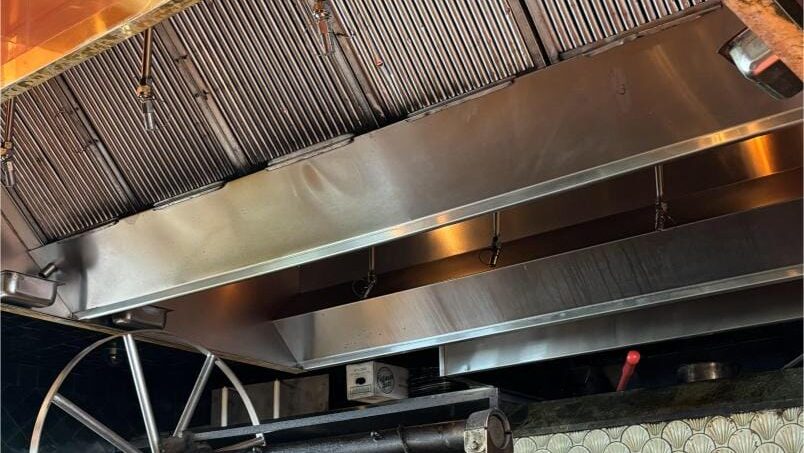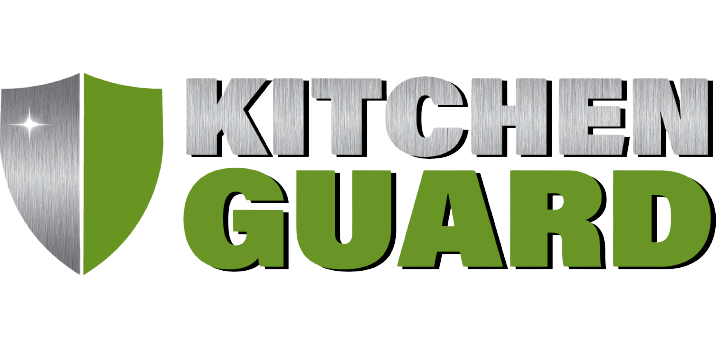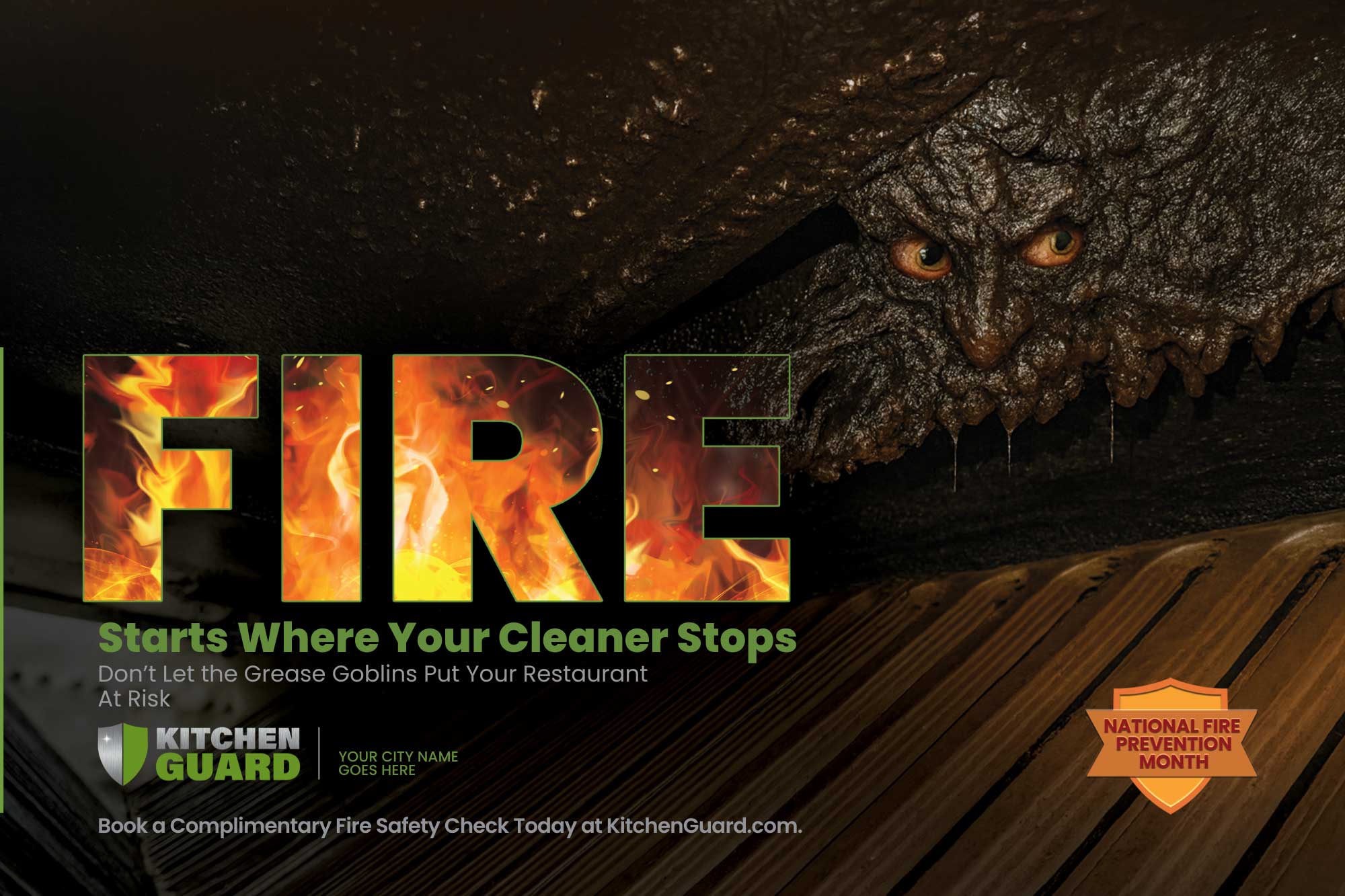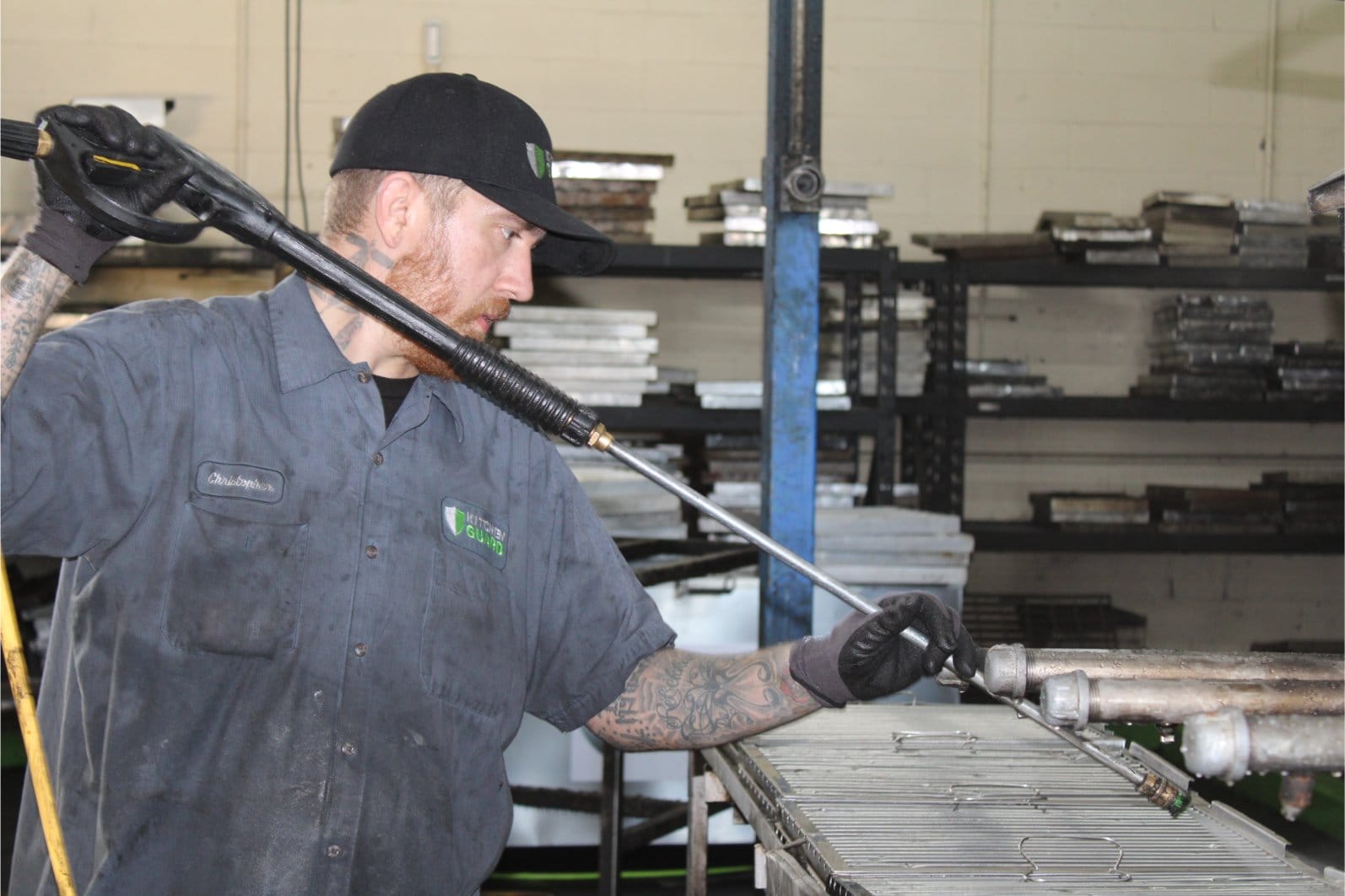The Hidden Dangers of Grease Buildup
Why Regular Hood Cleaning is a Must for Any Commercial Kitchen

Author: Molly Lombardo
Introduction
Grease buildup in commercial kitchens isn’t just a cleaning issue—it’s a serious fire hazard. Many restaurant owners and commercial kitchen operators underestimate the risks of neglecting their hood and exhaust systems, like waiting too long in between cleanings. Beyond fire risks, uncleaned kitchen exhaust systems can impact air quality for the kitchen crew and guests, violate NFPA 96 regulations (the benchmark for the local fire code enforcement), and increase energy costs (grease build-up makes the fans work harder!). In this blog, we’ll explore why regular hood cleaning is essential for fire safety, efficiency, and legal compliance.
The Fire Hazard Lurking in Your Kitchen
The National Fire Protection Association (NFPA) reports that cooking equipment is responsible for 3.5 (61%) of all restaurant fires. One of the leading culprits? Grease buildup. Over time, cooking grease accumulates in the hood, ductwork (including in unseen ducts leading to the fan on the roof), and exhaust fans, creating a highly flammable environment. When temperatures rise, it only takes a small spark to ignite a devastating fire.
A grease fire spreads rapidly, feeding on the layers of oil and fat built up over time. Without proper maintenance, restaurant owners risk not only property damage but also employee and guest safety.
Compliance with NFPA 96 and Local Regulations
NFPA 96 sets the standard for ventilation control and fire protection in commercial kitchens. The regulation mandates that exhaust systems be cleaned regularly to reduce the risk of grease fires. Depending on the type and volume of cooking, hood cleaning schedules should be followed:
- High-volume kitchens (fast food, 24-hour diners) – Monthly cleaning (sometimes weekly, too)
- Moderate-volume kitchens (casual restaurants, hotel kitchens) – Quarterly cleaning
- Low-volume kitchens (churches, seasonal businesses) – Semi-annual cleaning
Failing to comply with these standards not only increases fire risks but can also lead to fines, insurance issues, and even forced business closures. All of this can also damage a reputation and create distrust among guests.
Improving Kitchen Efficiency and Air Quality
A well-maintained exhaust system doesn’t just prevent fires—it keeps your kitchen running efficiently. When grease clogs the ventilation system, it reduces airflow, leading to heat buildup, excessive smoke, and poor indoor air quality. This can cause discomfort for kitchen staff and guests alike. Cooking creates heat, and when the kitchen crew is working hard in the summer months to keep up with demand, it can create an uncomfortable and inefficient work environment.
Additionally, when fans and exhaust systems work harder due to clogged ducts, energy consumption rises, increasing operational costs. Increasing margin suppression is something restaurant operators typically don’t welcome. Regular maintenance from a trusted professional partner ensures that the ventilation system runs smoothly, keeping employees comfortable and reducing overhead expenses.
Conclusion
Regular hood cleaning is more than just a best practice—it’s a necessity for fire safety, compliance, and efficiency. Partnering with a professional kitchen exhaust cleaning service provider like Kitchen Guard ensures your system remains NFP



